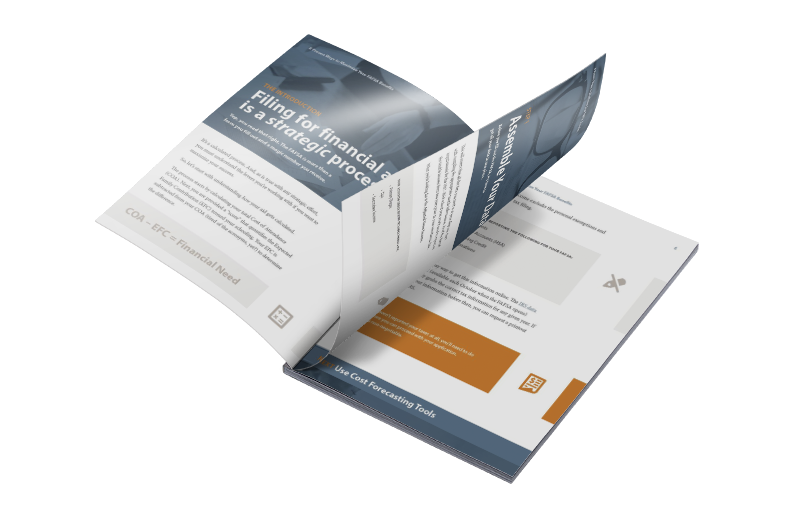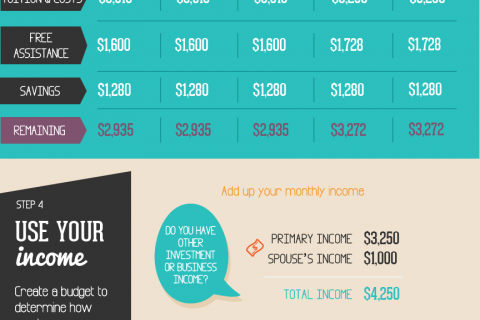Request Information
We're Sorry
There was an unexpected error with the form (your web browser was unable to retrieve some required data from our servers). This kind of error may occur if you have temporarily lost your internet connection. If you're able to verify that your internet connection is stable and the error persists, the Franklin University Help Desk is available to assist you at helpdesk@franklin.edu, 614.947.6682 (local), or 1.866.435.7006 (toll free).
Just a moment while we process your submission.

How to Pay for College Tuition Without Going Broke
With so many great reasons to return to college, including making a career change, nothing can curb your enthusiasm quite like thinking about paying for it. Yes, tuition costs have risen over the years (as have food, gas and housing). Yes, college tuition is a major expense. And yes, there’s plenty of rhetoric and debate over how our nation should address college affordability. It’s also true, however, that there are more options than ever for paying for college, and that some colleges, like Franklin University, are deeply committed to managing tuition costs and making college more affordable. With that in mind, here are some secrets to paying for college without breaking the bank:
Tips for Paying for College
- Create a household budget. Most of us can find a few money wasters in our monthly budget if we’re willing to be honest and ’fess up. Bottled water, restaurant meals, coffee shops, huge homes and brand-new cars. These are just a few of the ways we overspend. Make a monthly budget to reclaim money you already have, and then reallocate it to college tuition as an investment in your future.
- Ask for assistance. Talk to your employer about helping defray costs. Thousands of employers offer some form of financial support, including tuition, books and even paid time off for attending class. According to the U.S. Department of Education, National Center for Education Statistics, Adult Education Survey of the 2005 National Household Education Surveys, 86% of full-time workers received some type of financial support (tuition, books, materials) from their employer for formal work-related courses or training. In addition, IRS law enables and allows employers to provide up to $5,250 in tax-free tuition assistance.
- Investigate transfer credits.If you’ve attended college elsewhere, or completed professional or military training courses, find out if you’re eligible to transfer credit hours. If transferrable, you may be able to complete your degree faster and more affordably.
- Get extra credit. Consider taking one or more College Level Examination Program (CLEP) tests. These standardized tests award college credit at a cost of less than $100 per exam. Talk to an academic or admissions counselor, too, about life experience or portfolio credit, which lets you earn course credit for demonstrated college-level experience in the workplace.
- Tap into hidden benefits. Eligible military members and veterans may receive tuition benefits under the GI Bill. Length of active duty service determines benefit levels, however, private tuition and fee reimbursement is currently $17,500 per academic year.
- Apply for scholarships. Scholarships aren’t just for high school students. Look for scholarships within your sphere of influence, such as through professional associations or credit unions. Do internet research on specialty scholarships using such keywords such as “single partner scholarships,” “scholarships for moms returning to school,” “scholarships for laid off workers” and “scholarships for older adults.”
- Consider financial aid. A large majority of adult students take advantage of varied financial aid options. Meet with your college financial aid staff to talk about types of financial aid, including federal student loans. And because the federal government is the single biggest source of financial aid, follow @FAFSA on Twitter for information and financial aid tips from Federal Student Aid, an office of the U.S. Department of Education.
Related Resources
Finishing your college degree: Got what it takes?
How to successfully return to college as an adult.
Which College Degree Program is Right For Me? Get Help Here.





